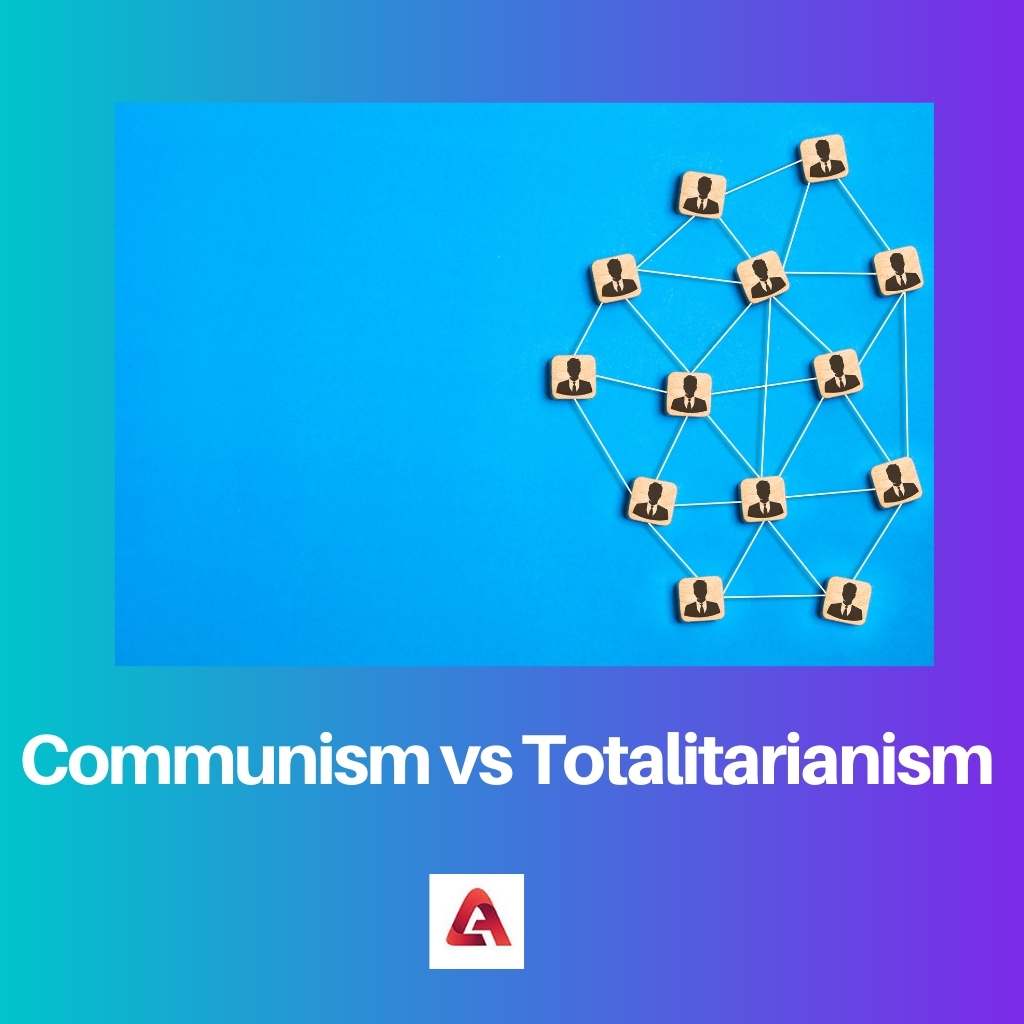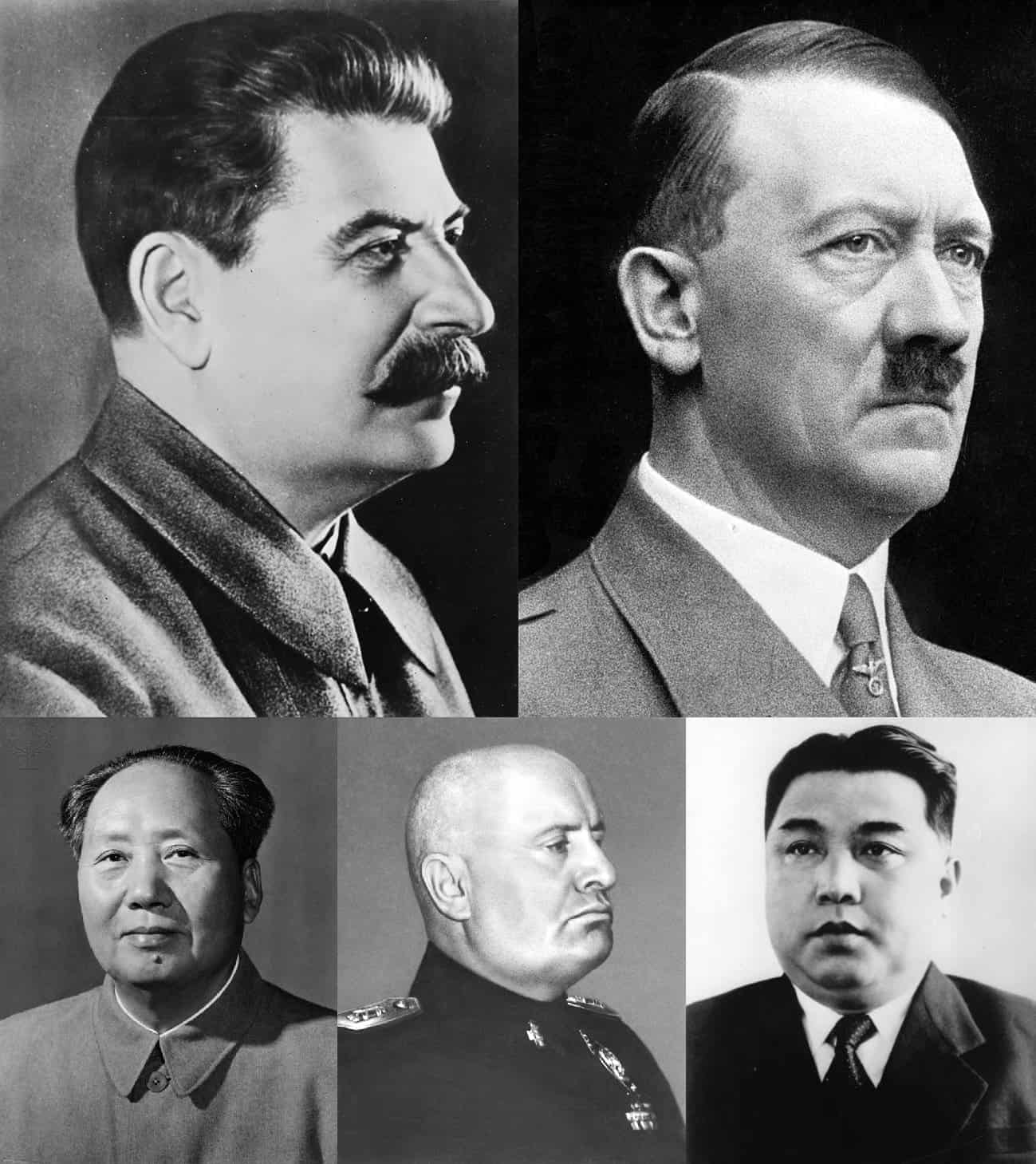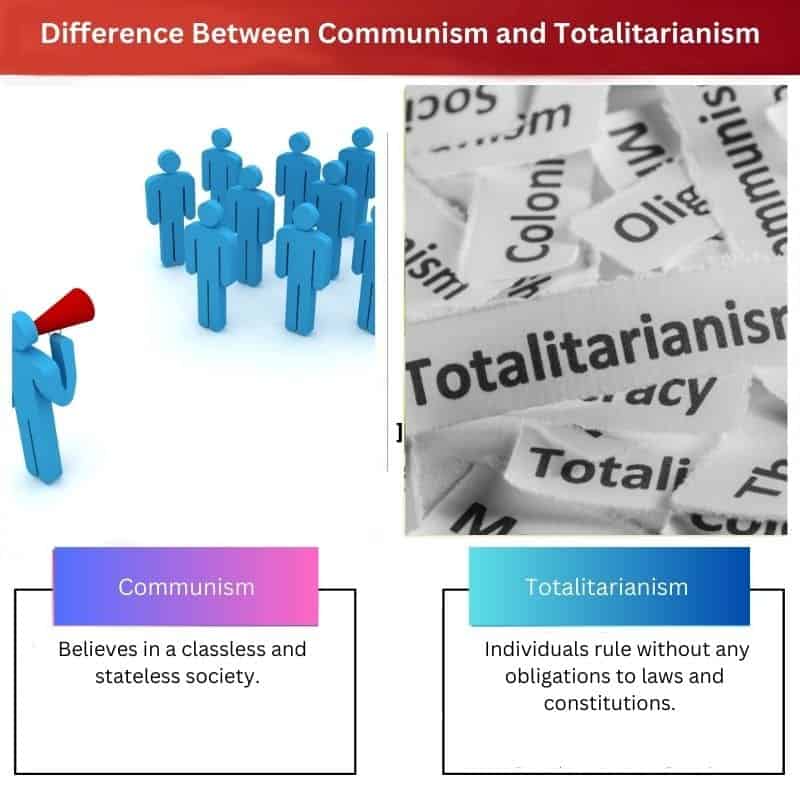Communism and Totalitarianism are different ideologies or ideological principles on how a government should operate. The political and economic ideologies of communism and totalitarianism are distinct.
Although some people link Communism and Totalitarianism, the two ideologies are significantly different.
Key Takeaways
- Communism is an economic system aiming for communal ownership, while Totalitarianism is a political system focusing on a single party or ruler with complete control.
- Communism’s main goal is to establish a classless society by eliminating private property, whereas Totalitarianism seeks to control every aspect of people’s lives.
- In Communism, the means of production are owned by the community, but in Totalitarianism, the state owns all property and resources.
Communism vs Totalitarianism
The difference between Communism and Totalitarianism is that Totalitarianism is a system in which the state controls everything, and there is no value in an individual’s opinion. The term implies total control. On the other hand, Communism is an ideology that believes in a classless or stateless society. The term does not imply total control.

A political ideology that believes in a classless and stateless society is Communism. The communist movement opposes a few wealthy individuals’ unjust exploitations of the masses.
The concept of social equality and equality of standard of living is based on the belief that all people in society are equal. The government is left-wing, and it believes in equal ownership of everything.
The concept of totalitarianism is one individual’s rule, who has no obligations to laws or constitutions and is not accountable to anyone. Absolute dictators select officers of their choice and run the affairs of their states.
Totalitarianism is a state-run system with no respect for individual thoughts or opinions.
Comparison Table
| Parameters of Comparison | Communism | Totalitarianism |
|---|---|---|
| Concept | Believes in a classless and stateless society. | Individuals rule without any obligations to laws and constitutions. |
| Absolute rule | Does not promote absolute rule or total control. | Signifies absolute rule or total control. |
| Individual opinion | The community takes all the major decisions. | No value in an individual’s thoughts or opinions. |
| Government | Left-wing | Right-wing |
| Ownership | Believes in common or equal ownership of everything. | Believes in state ownership. |
What is Communism?
A political ideology that believes in a classless and stateless society is Communism. Communism opposes the unjust exploitation of the masses by a few wealthy individuals.
It does not advocate total state control. They believe in equal and common ownership of everything.
It has a left-wing government.
In communism, society is viewed as a whole, and important decisions are made as a community. Societies have free reign under communism.
According to communists, the community or society solely owns resources or production means. The concept of social equality and equality of standard of living is based on the belief that all people in society are equal.
Everyone must contribute and work to improve society according to the individual’s abilities, and the government is responsible for meeting their needs. It was introduced to counter capitalism. Communists tend to believe that capitalism only protects the rights of a few privileged individuals.
The critics of communism, however, assert that it is a non-sustainable system of government since the citizens are not motivated to work hard.

What is Totalitarianism?
The concept of Totalitarianism is one individual’s rule, who has no obligations to laws or constitutions and is not accountable to anyone. Totalitarianism implies total control. It is a state of absolute power.
In this system, the state controls everything, and individual thoughts and opinions are worthless. It has a right-wing government.
The term Totalitarianism can also be used to describe authoritarianism or monarchy, as individuals do not participate in the decision-making process. As a system, Totalitarianism believes in state ownership. Under Totalitarianism, the state is the sole owner of all resources.
Furthermore, it even controls society’s beliefs and values and interferes with individuals’ private lives.
Absolute dictators select officers of their choice and run the affairs of their states. In the modern world, the majority of totalitarian governments result from military dictatorships.
Media freedom and free expression are limited in this form of government, and criticizing a dictator is prohibited. Nazi Germany was notoriously totalitarian.

Main Differences Between Communism and Totalitarianism
- A political ideology that believes in a classless and stateless society is Communism. On the other hand, the concept of Totalitarianism is one individual’s rule, who has no obligations to laws or constitutions and is not accountable to anyone.
- Communism does not advocate total state control. On the other hand, Totalitarianism implies total control.
- Communism has a left-wing government, whereas, Totalitarianism has a right-wing government.
- Communism believes in equal and common ownership of everything. On the other hand, Totalitarianism believes in absolute ownership of the state.
- In communism, society is viewed as a whole, and important decisions are made as a community. On the other hand, in Totalitarianism, the state controls everything, and individual thoughts and opinions are worthless.


The in-depth examination of key aspects and ideologies of Communism and Totalitarianism is comprehensive and insightful. This article is a valuable resource.
The examples and historical context provided for both Communism and Totalitarianism further elucidate their unique features, offering a comprehensive understanding.
The comparison table is particularly helpful in highlighting the key distinctions between Communism and Totalitarianism. This is a well-delineated explanation.
The article delivers a comprehensive and lucid exposition of Communism and Totalitarianism, contributing to an enhanced understanding of these complex ideological concepts.
The meticulously presented information regarding Communism and Totalitarianism highlights their divergent principles and underscores the significance of understanding these ideologies.
The article provides an erudite analysis, unraveling the intricacies of Communism and Totalitarianism, thereby enriching readers’ perspectives.
The thorough examination of these ideologies is conducive to fostering intellectual discourse and promoting an informed understanding of political structures.
The explanation provided in this article can help clarify the differences between Communism and Totalitarianism. It is essential to understand ideological principles to make informed decisions.
The detailed descriptions and comparisons between Communism and Totalitarianism offer a nuanced understanding of these ideologies, promoting critical thinking and analysis.
Absolutely, the delineation of concepts and the historical context provided enhances readers’ comprehension and engagement with these complex ideologies.
The comprehensive nature of this analysis makes for an enlightening and thought-provoking exploration of political and economic ideologies.
The article provides a clear analysis of Communism and Totalitarianism, shedding light on their distinct characteristics. A valuable educational resource.
Indeed, this article serves as a foundation for understanding these ideologies, enabling readers to discern their differences and implications.